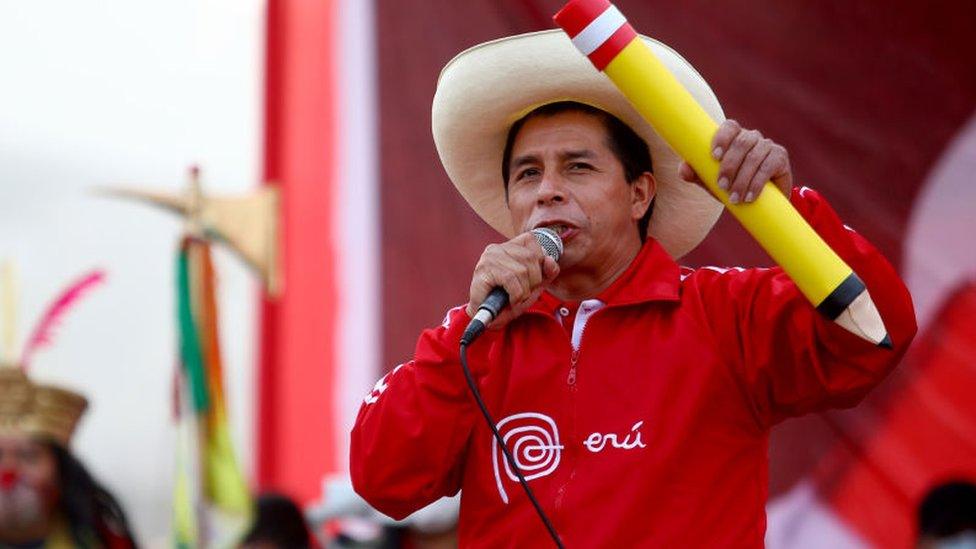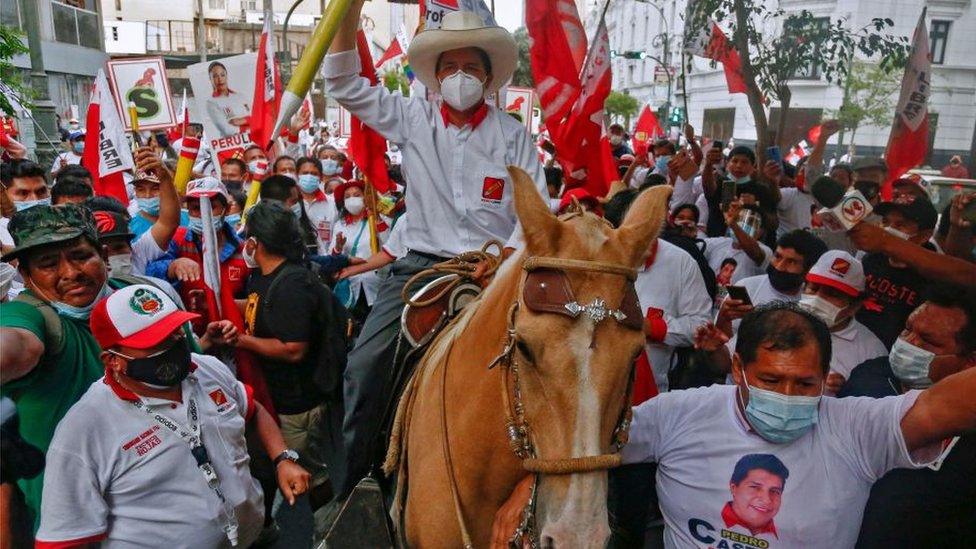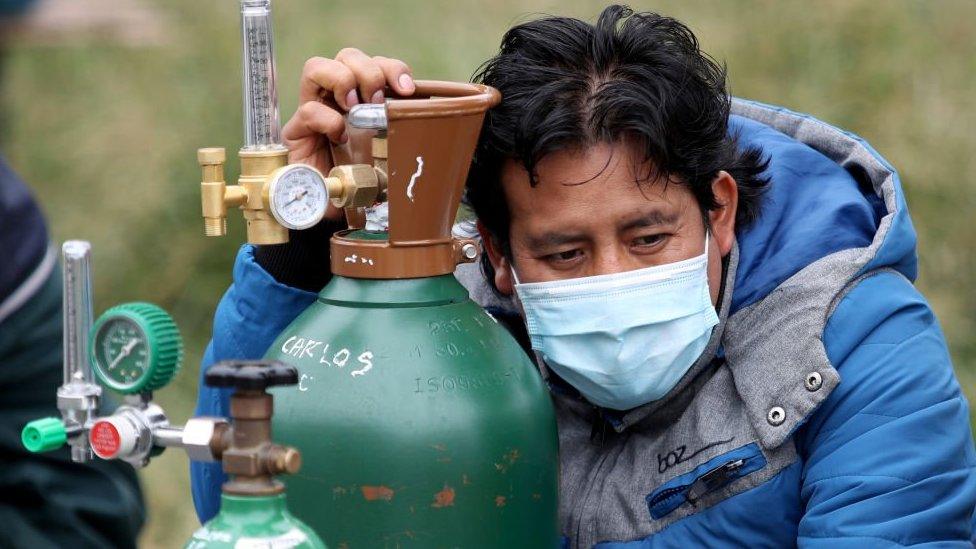Pedro Castillo: The primary school teacher who became Peru's president
- Published

Pedro Castillo won the election by a margin of just 44,000 votes
After a long and tense election process, Pedro Castillo has been sworn as Peru's president. His victory has shaken the political and business elite in a deeply polarised country hit hard by the pandemic.
Born in a tiny village in one of Peru's poorest areas, Pedro Castillo grew up helping his illiterate parents with farm work. As a young student, he had to walk for more than two hours to reach school.
He eventually became a schoolteacher, a job he did for 25 years, and a union leader. And in a meteoric rise to power, despite having no experience in office, in 2021 he was elected president of Peru, propelled by the same rural voters he grew up with.
"Never again a poor man in a rich country!" was a regular message in his campaign rallies, as he voiced the frustration of struggling Peruvians. "I do know what it is to sweep a school," he once said.
Casting himself as a man of the people, Mr Castillo was rarely seen without the traditional white, broad-rimmed hat of his Cajamarca region, and a huge inflatable pencil, the symbol of his Marxist Free Peru party which also represents his background in education.
He argues the country has not been governed in the interest of the vast majority, and has called for "drastic changes" to address poverty and inequality, including a controversial pledge to draft a new constitution.
His opponents have tried to portray him as a left-wing extremist with ties to communist guerrilla groups, allegations he denies. He has moderated his rhetoric, but critics remain concerned that some of his plans could undermine one of the most stable countries in Latin America.

Mr Castillo rode a horse at a rally during his presidential campaign
'Time has come'
The third of nine children, Mr Castillo was born in Puña in 19 October 1969, and worked as a primary school teacher from 1995 to 2020. He started his political career in 2002, when he unsuccessfully ran for mayor, and first rose to prominence in 2017 during a teachers' strike over pay and performance evaluation.
Despite being little known in urban areas, he became a candidate in this year's presidential election, and unexpectedly won the first round, edging out 17 other candidates. He went on to defeat Keiko Fujimori, the daughter of former President Alberto Fujimori and the favourite among business leaders.
His victory, by just 44,000 votes, was confirmed after a weeks-long counting process in which authorities reviewed a number of challenges from the Fujimori camp. "The time has come to call on all sectors of society to build together... an inclusive Peru, a fair Peru, a Free Peru," he said.
Mr Castillo managed to appeal to many Peruvians fed up with the corruption scandals which have overshadowed politics for years.
But now comes the hardest part.
Peru has the world's highest Covid-19 death rate per capita, and the economic crisis has pushed millions into poverty. He plans to increase mining taxes to fund public services, including education and health, whose inadequacies were exposed by the pandemic, and to create a million new jobs in a year.
He has softened some of his more radical positions, such as a proposal to nationalise key economic sectors such as mining, oil, hydroelectric power and gas, and promised to respect private property.
One of his main promises was to call a referendum for an assembly to write a new constitution, to replace the current text enacted in 1993 under Alberto Fujimori. Mr Castillo has called for a document that "has the colour, smell and flavour of the people".
However, he will have to contend with a fragmented Congress, where the proposal faces resistance.
Mr Castillo is Catholic and vehemently opposes same-sex marriage and abortion. He is married to Lilia Paredes, who is also a teacher, and they have two children.
The family only moved to the capital, Lima, shortly before Mr Castillo's inauguration, which coincided with Peru's 200-year anniversary of independence. He has said he is not out to enrich himself, vowing to only draw the salary equivalent to what he is paid as a teacher.
Additional reporting by BBC Monitoring
Related topics
- Published1 June 2021
